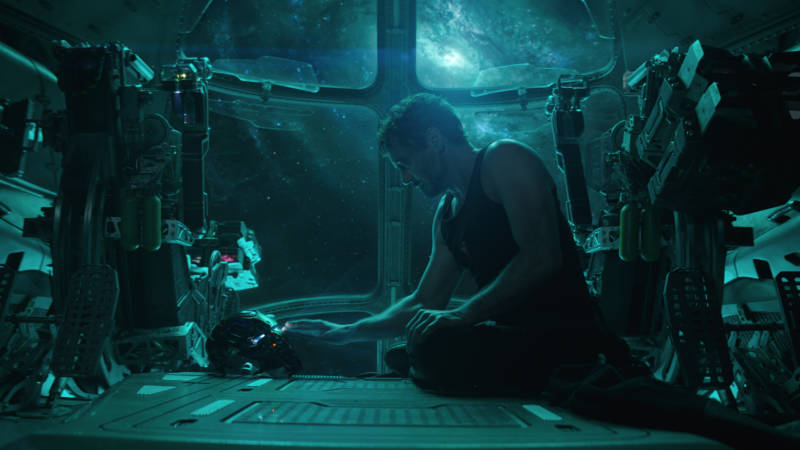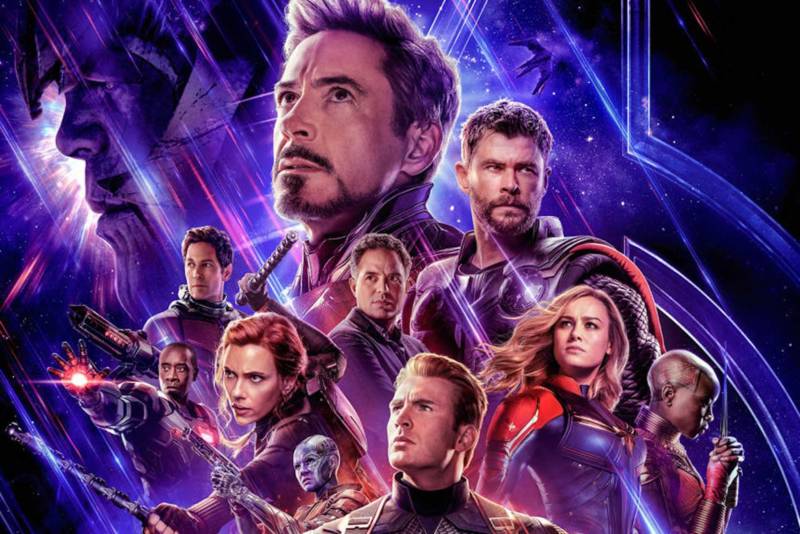Let's start with a bit of service journalism: Going into Avengers: Endgame, one would be well-advised to manage both one's expectations, and—given its three-hour-plus, intermissionless runtime—one's fluid intake.
The film deposits us, in medias res(igned), into a world sunk neck-deep in mourning, though it shows us only fleeting (albeit intriguing) glimpses of how that world's non-spandex contingent is muddling through somehow. No, the film's concerns are the same as ours: For more than a year now, we've wondered how the remaining Avengers (particularly founding parents Iron Man, Captain America, Black Widow, Hulk and Thor) would deal with the fact that 50 percent of the universe's living beings vanished into visually striking dust, due entirely to our heroes' collective failure to keep a certain giant purple mesomorphic despot from snapping his bedazzled fingers. (NOTE: This shattering cosmic event has been dubbed "The Snapture" by one minor media semi-luminary who shall remain me. NOTE THE SECOND: Marvel has not officially signed on to said coinage. NOTE THE THIRD: But they totally should. NOTE THE FOURTH: Because, come on.)
The film's decision to breeze over how fundamentally the world has changed around our heroes may have as much to do with directors Anthony and Joe Russo's desire to make a movie about the intersection of communal grief and personal guilt as it does with the fact that said film is being made in a post-The Leftovers media universe—after all, that series cornered the market on depicting what a collective, aching loss looks like on a global scale.
Instead, Avengers: Endgame burns through the first two hours showing us how its heroes have dutifully arranged themselves at various way stations along the spectrum of the Kubler-Ross stages of grief: wet-eyed denial, violent rage, disingenuous bargaining, beer-soaked depression and performatively optimistic (and not entirely sincere) acceptance. This is where the aforementioned expectation management will serve you well, particularly if one of the (perfectly reasonable!) expectations you're clinging to is that the culminating chapter of the Avengers saga must and should take the form of a wall-to-wall cosmic brawl, from the jump. Because the film's first two hours prove a resolutely intimate and unapologetically somber cinematic experience overall—albeit one punctuated by bracing and welcome jolts of humor from Chris Hemsworth's newly bleary Thor, Mark Ruffalo's freshly smarmy Hulk and Paul Rudd's as-always goofy Ant-Man.

It cannot possibly be a spoiler to note that our heroes—eventually—band together in an attempt to reverse the effects of The Snapture. Nor can it be a spoiler to note that said early attempts have no real hope of success, unless and until help arrives from unlooked-for sources. (The sheer narrative breadth of the Marvel Cinematic Universe, peopled (and raccooned and treed) as it is with so many different characters both Snaptured and un-, ensures that in any given story moment, our brains refuse to contain them all. So in those instances when unlooked-for help does arrive in the nick of time, it can't help but come as a surprise, because you'll have legitimately forgotten about its sources' existence.)

9(MDAxOTAwOTE4MDEyMTkxMDAzNjczZDljZA004))

